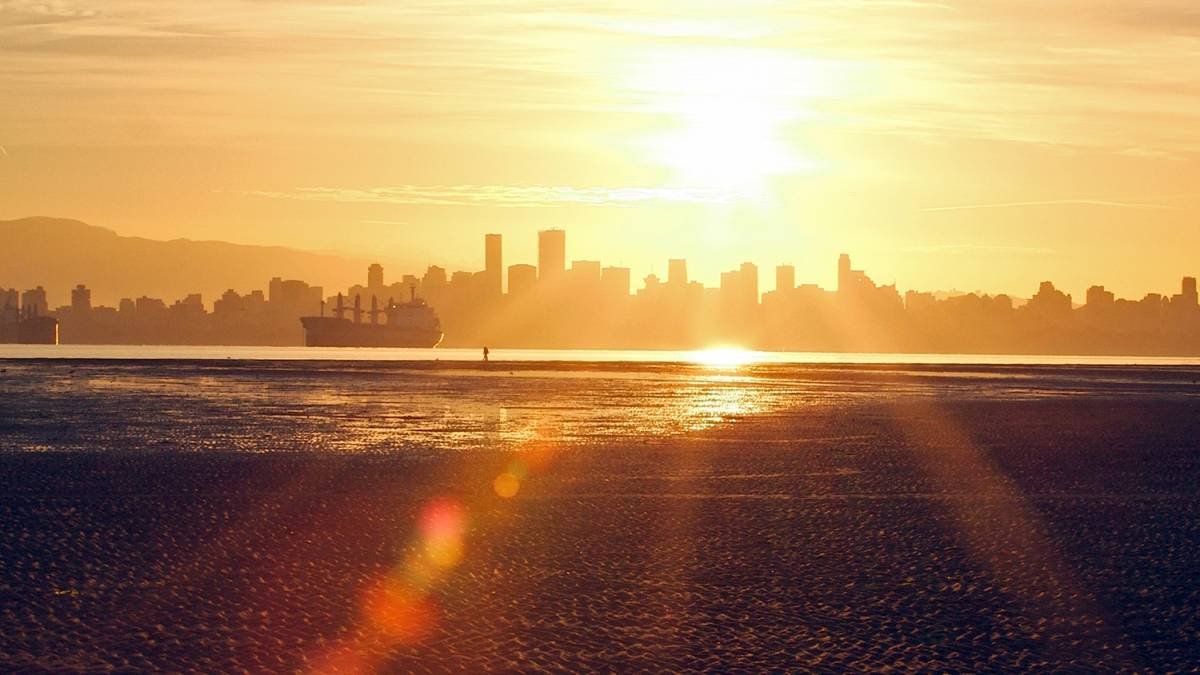(Note: Charles Wilkinson is a good guy but Sandy Garassino is a dangerous psychopath, and, like most of Vancouver’s media and political class, an absolute a pox on the city.)
Everyone has their own version of Vancouver. For Charles Wilkinson, the madness that so visibly and famously seized our housing market during the past few years actually began at least three decades ago. “Expo pissed me off so much,” says the filmmaker, who fled the city for Deep Cove in 1986. “I remember thinking, ‘You’re partying with money you don’t have. This is a terrible idea.’ And, as it turns out, it was a terrible idea.” He’s a little more circumspect with his own opinions in Vancouver: No Fixed Address, which begins an unprecedented three-week run at the Vancity Theatre on Friday (May 19). Rather, Wilkinson manages to juggle virtually everybody else’s Vancouver story inside the ravishingly shot feature-length doc, hitting all the various perspectives you’d expect from, among others, new immigrants interviewed on stunning West Vancouver patios, millennials sharing a tiny East Side property, and one beach-dwelling 67-year-old who you’d never take for homeless.
The common thread here is a housing market inflated beyond all reason by Vancouver’s desirability not only to humans who happen to admire the air quality but also to liquid capital—a situation interpreted in the film to greater or lesser degrees of credibility by pundits like Sandy Garossino, economist Fayyaz Alimohamed, and “condo king” Bob Rennie. Anybody who has lived through the city’s phenomenal transformation from sleepy lotusland to globalist’s wet dream will feast on what Wilkinson has assembled here, and his timing with the project is miraculous. It is also, he points out, “the natural sequel” to a trio of environmentally minded docs that climaxed last year with his multiple-award-winning Haida Gwaii: On the Edge of the World.
“I woke up one morning and realized that this was actually my environment,” he explains during a call to the Georgia Straight. “This is where I live, and it’s under threat from extraordinary commercial overexploitation.” With Haida Gwaii, Wilkinson tipped his hand a little, gently urging viewers to disengage from a lifestyle so steeped in consumerism that we’ve become largely blind to it. Vancouver: No Fixed Address strikes an admirably balanced POV as it looks at the various solutions adopted by Vancouverites who have been priced out of the market in their own city. But it also makes the basic assumption that our homes have been converted into speculative instruments for the rich. UBC geography prof David Ley speaks of the “irrefutable” impact of offshore money, while David Suzuki reminds us that “world class”—that distinctly pathological ambition of ours—is really a weasel term meaning “corporate agenda”. Investigative journalist Sam Cooper is the most blunt, arguing that the city consciously busies itself building “a bunch of stocks in the sky.”
“Maybe I shouldn’t say this,” he says in one of the film’s bigger bombshells, “but a former city planner who is no longer under the thumb of the government told me that 90 percent of condo units in Vancouver are bought by investors. It’s a big number, yeah.”
“I thought Sam Cooper and Sandy Garossino, they certainly nailed the big picture. Our interviews with them just chilled me to the bone,” says Wilkinson, who adds rather ominously that he was most haunted by information that he couldn’t include in the film. “Some of this stuff is so fucking dark. It’s more dark than you even want to know. Like Sam said at one point, people look at Vancouver and they see this beautiful, glittering paradise of a clean place, and they don’t realize that, like in the opening of Blue Velvet, when the guy falls down and has a heart attack on the grass and the camera goes tracking down and under the surface, there’s all this dark, evil, black stuff. He said: ‘That’s Vancouver.’ ”
That’s also a whole other film. “The kind of film where you wake up with two broken legs at the bottom of the ocean,” quips Wilkinson, who acknowledges that we’re on the bleeding edge of a worldwide problem, with Vancouver occupying one of the favoured tables in the highly exclusive (and somewhat crooked) global economic casino. If that’s enough to plunge anyone into despair, Vancouver: No Fixed Address somehow remains an amazingly bright and engaging piece of work. Maybe because its director isn’t ready to give up on his city’s future.
“We could all remain so scared that we keep voting for the money politicians and say, like so many of my friends, ‘Well, we’re doomed, so let’s keep partying,’ ” Wilkinson says. Or, he adds, we could actually fight to repair a broken social contract. “Marching, writing letters, taking part in the democratic process in the way that my parents’ generation did. If people do that,” the filmmaker offers, “then we can turn this thing around.”
Georgia Straight, June 2017
